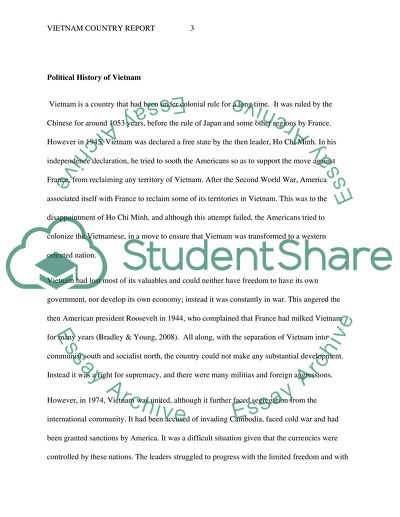Cite this document
(“Vietnam Country Report Research Paper Example | Topics and Well Written Essays - 1750 words”, n.d.)
Retrieved from https://studentshare.org/history/1482678-vietnam-country-report
Retrieved from https://studentshare.org/history/1482678-vietnam-country-report
(Vietnam Country Report Research Paper Example | Topics and Well Written Essays - 1750 Words)
https://studentshare.org/history/1482678-vietnam-country-report.
https://studentshare.org/history/1482678-vietnam-country-report.
“Vietnam Country Report Research Paper Example | Topics and Well Written Essays - 1750 Words”, n.d. https://studentshare.org/history/1482678-vietnam-country-report.


